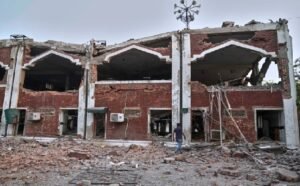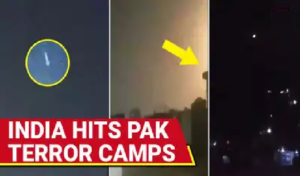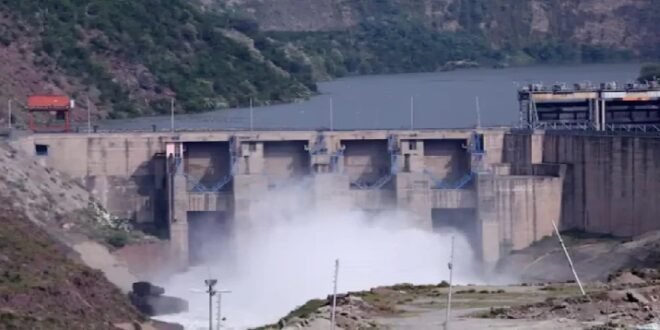12-05-2025
Bureau Report + Agencies
NEW DELHI/ KARACHI: A key water-sharing pact between India and Pakistan remains suspended, four government sources told media, despite the countries reaching a ceasefire agreement on Saturday after days of deadly fighting.
The Indus Waters Treaty, mediated by the World Bank in 1960, regulates the division of water from the Indus River and its tributaries between the South Asian nations.
 India pulled out of it last month after a deadly attack targeting Hindu tourists in Kashmir that it said was backed by Islamabad.
India pulled out of it last month after a deadly attack targeting Hindu tourists in Kashmir that it said was backed by Islamabad.
Pakistan denied involvement in the violence and had said it was preparing international legal action over the suspension of the treaty, which ensures water for 80% of its farms.
What were the targets in Pakistan?
India struck nine “terrorist camps” in Pakistan on Wednesday that it accused of serving as indoctrination centres, training areas, and launchpads, two weeks after an attack in Indian Kashmir that the south Asian nation linked to its neighbour.
MARKAZ TAIBA CAMP
India says the camp, 25 km (16 miles) from the de-facto border, was the headquarters of militant group Lashkar-e-Taiba (LeT), which has been linked to last month’s attack.
Ajmal Kasab, the sole perpetrator of the 2008 attack on Mumbai to be captured alive, was also trained at the facility. More than 160 people were killed in the attack on India’s financial capital.
MARKAZ SUBHAN CAMP
The target deepest in Pakistan, about 100 km (62 miles) from the border, this camp was the headquarters of Islamist group Jaish-e-Mohammad (JeM) and was used for recruiting, training, and indoctrination, India says.
MEHMOONA JOYA CAMP
 India says attacks planned and executed from this camp, a training facility of militant group Hizbul Mujahideen 12 km (7 miles) from the border, include a 2016 attack on an Indian air base that killed seven.
India says attacks planned and executed from this camp, a training facility of militant group Hizbul Mujahideen 12 km (7 miles) from the border, include a 2016 attack on an Indian air base that killed seven.
GULPUR CAMP
This camp was a base for LeT located 30 km (19 miles) from the border, India says, adding that a June attack targeting pilgrims in Kashmir’s Poonch region, which killed nine, was among those executed by “terrorists” trained at the facility.
Zaki-ur-Rehman Lakhvi, the mastermind of the 2008 Mumbai attack, also frequented the camp for “indoctrination and motivational speeches”.
SARJAL CAMP
India says the perpetrators of an attack in March that killed four police personnel in India’s Jammu and Kashmir were trained and launched from the camp, 6 km (4 miles) inside Pakistan.
ABBAS CAMP
This camp, located 13 km (8 miles) from the border, was the “nerve centre” for training LeT suicide bombers, India says.
SYEDNA BELAL CAMP
India says this camp, a staging area for JeM, was used to provide weapons’ and explosives’ training, and survival techniques for “terrorist activities” in Indian Kashmir.
SAWAI NALA CAMP
Located about 30 km (19 miles) from the de-facto border, the camp was a key training facility for LeT, India says.
BARNALA CAMP
India says this facility was used to train terrorists in weapon handling, improvised explosive device making, and jungle survival techniques.
 Pressmediaofindia
Pressmediaofindia




